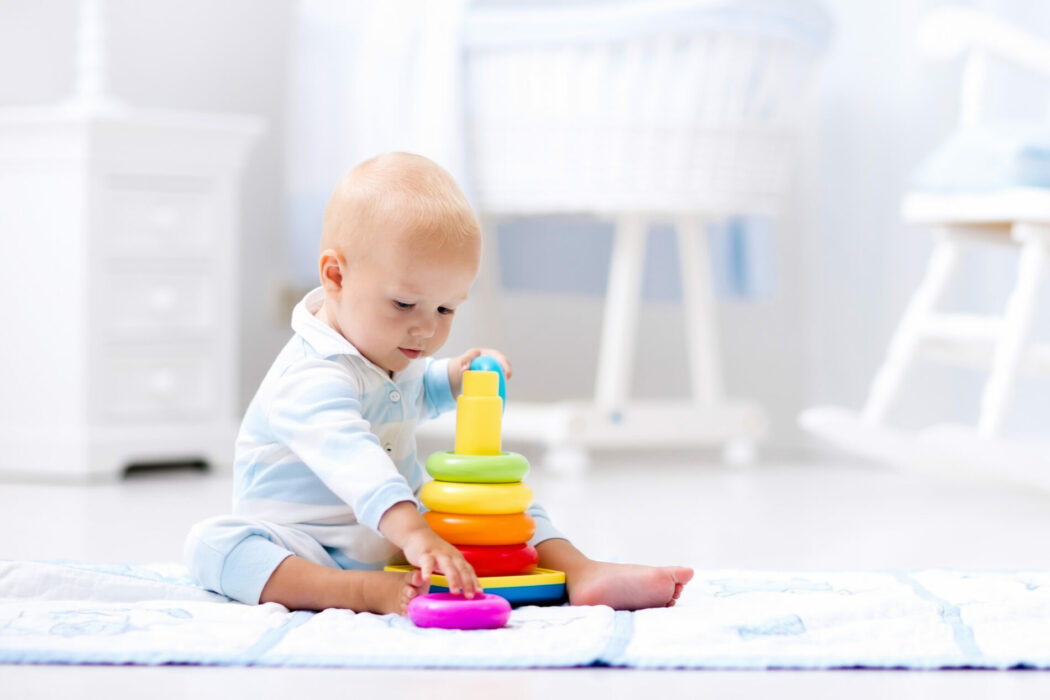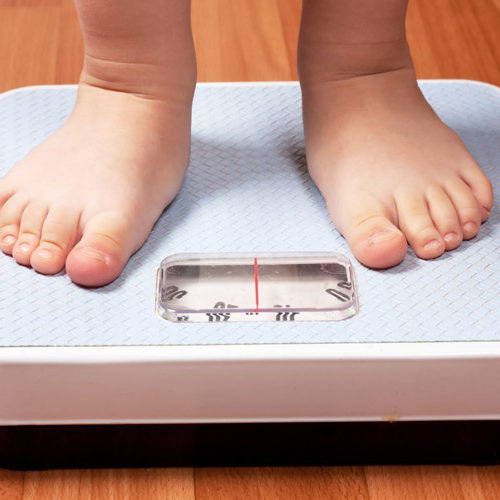20 ways to boost your baby’s brain power
These easy, everyday moves can help your baby in developing his/her language, attention and reasoning skills.
Your baby is truly amazing! Did you know that at birth, your baby’s brain contains 100 billion neurons – that’s as many stars as there are in the Milky Way! During a baby’s first years, they will grow trillions of brain-cell connections, called neural synapses. But here’s the thing…the rule for brain wiring is to ‘use it or lose it’. Synapses that are not ‘wired together’ through stimulation are pruned and lost during a child’s school years.

Although an infant’s brain does have some neurological hard wiring, such as the ability to learn any language, it is more pliable and more vulnerable than an adult’s brain. And, amazingly, a toddler’s brain has twice as many neural connections as an adult’s.
When we provide loving, language-enriched experiences for a baby, we are giving their brain’s neural connections and pathways more opportunities to connect together. In turn, the baby will acquire rich language, reasoning and planning skills. The following activities will help make sure your baby’s brain is primed for years of learning ahead.
Give your baby a good start before birth
Stay healthy while you are pregnant, and be aware that certain drugs can be destructive to your baby’s brain in utero. Many children who were drug abused in the womb struggle with severe learning problems and suddenly act with unprovoked aggressive behaviours. Studies have also revealed that cigarette smoking during pregnancy is linked with lower fourth grade reading scores.
Talk to your baby all the time!
Respond to infant coos with delighted vocalisations, and slowly draw out your syllables in a high-pitched voice as you exclaim phrases like “good girl!” This way of speaking is called parentese, and the exaggerated facial expressions and drawn-out vowels help your child absorb all the sounds of our language.
Play games that involve hands
Activities like patty-cake, peekaboo, this little piggy, or even puppets engage your baby and capture her attention. Using your hands shows young children how we physically interact with our world — plus, hands-on activities are simply more fun for both of you!
Be attentive
When your young child points, be sure to follow with your gaze and remark on items or events of interest to her. This “joint attention” confirms how important her interests and observations are to you.
Foster an early passion for books
Choose books with large and colorful pictures, and share your baby’s delight in pointing at certain images or even making noises that correspond with the book — like baa! when you see a sheep. Modulate the tone of your voice, simplify or elaborate on story lines, and encourage toddlers to talk about books. Remember that building your baby’s receptive language (understanding spoken words) is more important than developing his expressive language (speaking) in infancy.
Build your baby’s awareness of their own body
Stroke her tummy and hair when reading, playing, or even diapering. Studies have shown that babies who are not often touched have brains that are smaller than normal for their age, and interacting with her close-up also helps direct her attention to your speech.
Choose toys that allow babies to explore and interact
Toys such as a windup jack-in-the-box or stackable blocks help your baby learn cause-and-effect relationships and “if-then” reasoning. For instance, if a child stacks too many blocks without straightening them, they fall down. If he successfully stacks blocks on top of each other, he “wires in” that information.
Respond promptly when your baby cries
Contrary to some old-fashioned beliefs, there is no benefit in letting a baby cry and cry until they become distressed. Soothe, nurture, cuddle, and reassure your baby so that you build positive brain circuitry in the limbic area of the brain, which is involved in emotions. Your calm holding and cuddling, and your day-to-day engagement with your baby, signal emotional security to the brain.
Build your bond by being attentive and focused
When your child is playing, resist the temptation to check Instagram. Instead, get on the ground and spend time interacting with him. Babies who are securely attached to you emotionally will be able to invest more energy in the pleasures of exploration, learning, and discovery.
Massage your baby
This can lower your infant’s stress levels and enhance her feelings of well-being and emotional security. Loving touches even promote growth in young babies: Research has shown that premature babies who are massaged three times daily are ready to leave the hospital days earlier than babies who do not receive massages.
Enlist help from your toddler at clean-up times
This is a wonderful way to help your children learn to take responsibility and get organised. Try singing this simple rhyme as you ask your toddler to help you to clear up their toys together: ‘Tidy, tidy 1-2-3 I’ll help you, and you help me!’ Toddlers learn that stuffed animals have one place to go at night-time after play finishes; cars, trucks, dolls, jigsaws and other toys also have their special storage place. Children need to learn about sorting into categories and seriation (placing things in order; for example, from smallest to largest) as part of their cognitive advancement in preschool.
Set up a safe environment for your crawling baby or toddler
Your mobile child will begin to understand spatial parameters and vocabulary such as under, over, big, little, near, and far, plus the relationship between objects of different shapes and sizes (those that are big versus little, for instance). He will start to establish mental maps of his environment and a comfortable relationship with the world in which he lives.
Sing nursery rhymes and songs
When you can, add body motions and finger play (like waving your arms during “You Are My Sunshine” or miming rain falling during “Rain, Rain, Go Away”). This helps your baby connect sounds with large and small motor actions. Songs also enhance your child’s learning of rhythms, rhymes, and language patterns.
Match your tempo to your child’s temperament
Some children adjust easily to strange situations — some are bold and impulsive, and some are quite shy. Go with the flow as you try to increase a shy child’s courage and comfort level, or help a highly active child safely use her fantastic energy while learning impulse control. Your acceptance will give her the comfort she needs to experiment and learn freely.
Make meals positive
Say the names of foods out loud as your baby eats. Express pleasure as he learns to feed himself, no matter how messy the initial attempts may be. This will create pleasant associations with mealtime and eating. Battles and nagging about food, on the other hand, can lead to negative brain patterns.
Provide clear responses to your baby’s actions
A young, developing brain learns to make sense of the world if you respond to your child’s behaviour in predictable, reassuring, and appropriate ways. Be as consistent as possible.
Use positive discipline
Create clear consequences without frightening or causing shame to your child. If your toddler acts inappropriately, such as by hitting another child, get down to her eye level, use a low, serious tone of voice and clearly restate the rule. Toddlers do not ever need to be shouted at. Just keep rules simple, consistent, and reasonable for your child’s age. Expecting a toddling baby not to touch a glass vase on a coffee table is unreasonable but asking a toddler not to throw sand outside of the sandbox is reasonable.
Model empathic feelings for others
Use teachable moments when someone seems sad or upset to help your toddler learn about feelings, caring, sharing, and kindness. The more brain connections you create for empathic responses and gentle courtesies, the more these brain circuits will be wired in. This helps not only with language and cognitive learning, but with positive emotional skills, too!
Arrange supervised play with messy materials
It can be water, sand, and even slime or goop! This will teach your child about the properties of liquids, solids, and mixtures — sensory experiences that are crucial for the learning brain.
Express joy and interest in your baby
Let your body language, your shining eyes, your attentiveness to babbling and baby activities, and your gentle caresses and smiles validate the deeply lovable nature of your little one.












Comments